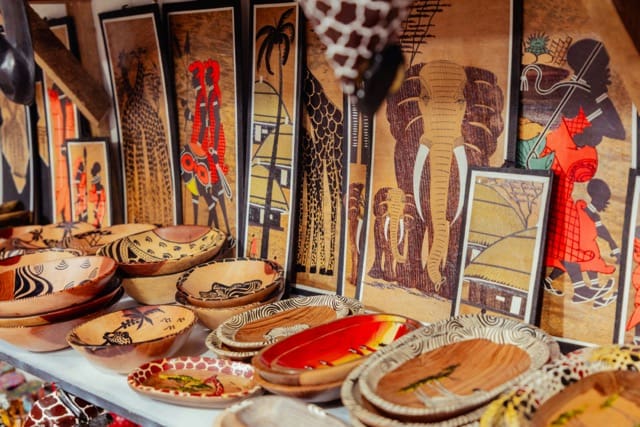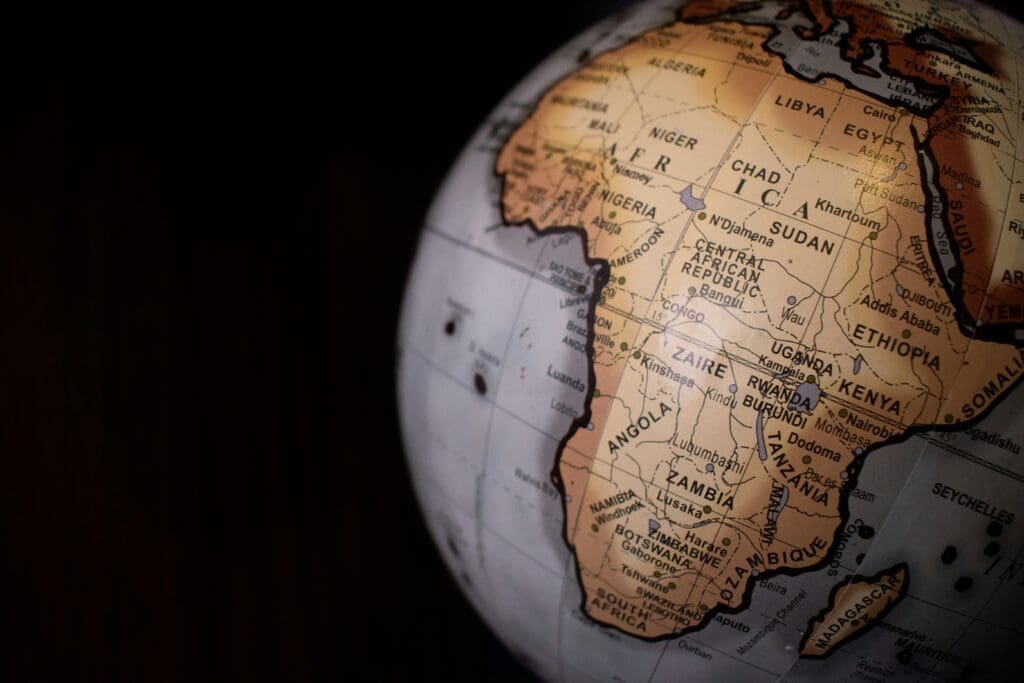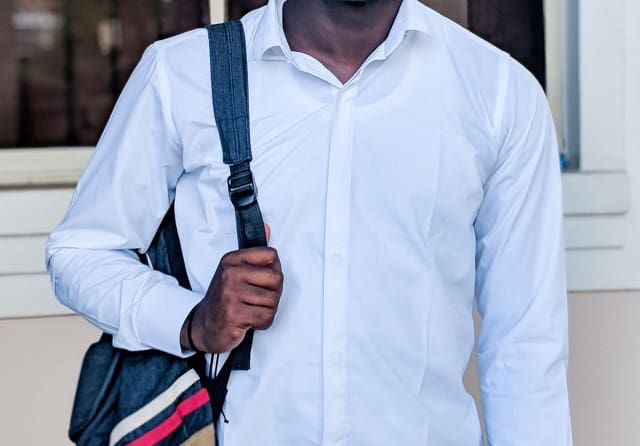For many African Americans, gaining African citizenship or a second passport represents a powerful reconnection to their roots—and a chance to invest, live, and thrive on the continent. The European diaspora in America have had this opportunity through citizenship by ancestry programs that allowed them to reconnect with their homeland over many generations.
If you are interested in learning how to obtain African citizenship this guide is for you.
Table of Contents
The current reality for African Americans is harsh
Most African countries have ambiguous, restrictive or demanding requirements to become African and the traditional routes to African citizenship don’t apply to the descendants of enslaved Africans.
- Citizenship by Descent: Most African countries limit this to one generation. If your parents weren’t born in Ghana, Kenya, or Nigeria — you’re out.
- Naturalization: You’ll often need to live in-country for 5 –10 years, speak a local language, and meet bureaucratic or financial hurdles.
- Marriage: Many countries restrict this to local men marrying foreign women — and it still requires years of residency.
While you can try to follow some of these pathways, you’re not always guaranteed to succeed.
Even if you technically qualify, most mainstream routes are slow, unpredictable, and bogged down by bureaucracy. African governments often suffer from administrative delays, vague criteria, and excessive paperwork — with decisions left to the discretion of overworked officials. This results in wasted time, money, and no guarantee of approval.
In short, the vast majority of African Americans — whose ancestors were violently disconnected from their homelands 400 years ago— have no direct legal link to reclaim citizenship through conventional means without immediate familial ties.
That is, until recently.
New Ancestral Citizenship Paths are Emerging in Africa

Over the course of the past two decades, African citizenship has only been granted on a case-by-case basis—often as a special honour given by the president of that country. Grey’s Anatomy star Isaiah Washington, became a citizen of Sierra Leone in 2006 for his philanthropic work, and Samuel L. Jackson, received Gabonese citizenship after filming his documentary Slavery. Even Stevie Wonder was granted Ghanaian citizenship in 2024 for his efforts to establish closer ties with Ghana.
We can’t all be honorary citizens, but it has set in motion some unique opportunities as the demand of the black diaspora to return home increases, and along with it, much economic growth for the fastest growing economic region in the world.
But a few African countries are now opening real doors for the diaspora. Some are offering citizenship by ancestry, using verified DNA tests to prove a connection to local tribes:
- Ghana has hosted symbolic homecomings like the Year of Return in 2019, granting citizenship to around 500 African Diaspora with DNA links to Ghana. However, after the hype, there haven’t been any official citizenship ceremonies since.
- Benin has implemented a law in April 2025 which allows grants citizenship to any individual over 18 years of age who can prove that they are descended from an ancestor deported from the region in the slave trade using a DNA test or civil status documentation. Only people who do not already hold an African passport are eligible.
- Kenya, Uganda and Burkina Faso are also considering implementing similar programs, but none of these have implemented a reliable, legal process to become a citizen.
Out of all the paths to African citizenship — only one country consistently works for African Americans born in the U.S. with no living ties to Africa: Sierra Leone.
Sierra Leone’s Citizenship Pathways
Sierra Leone is by far the best option for African Americans , and hundreds of African Americans have already taken this path and been welcomed back, passport in hand.
Sierra Leone offers not one, but THREE distinct, reliable paths to become an African passport holder faster than any of the mainstream methods to become a citizen:
- Ancestry (African Diaspora Accession) – which grants citizenship purely based on proving your West African heritage through a DNA test, and guided by a tour operator.
- Fast Tracked Naturalization (by Investment) – which grants citizenship to any national that makes a donation of $140,000 that grants citizenship in 90 days.
- Fast Tracked Naturalization (Heritage) – which is a discounted version of the Citizenship by investment option which grants citizenship for a donation of $100,000 if you can prove your Western Africa lineage through a DNA test.
Advantages of the Sierra Leone passport
While not powerful for global travel, the Sierra Leone passport has its advantages. This includes ease of business in the ECOWAS region, investment opportunities in the fastest growing economy in the world, and reconnection to a rich cultural heritage.
ECOWAS includes: Benin, Burkina Faso, Cabo Verde, Côte d’Ivoire, The Gambia, Ghana, Guinea, Guinea-Bissau, Liberia, Mali, Niger, Nigeria, Senegal, Sierra Leone, and Togo.
If you can trace your ancestry back to any of the tribes found in West Africa, specifically the 15 ECOWAS members, you are eligible for a passport through its unique ancestral programs.
Having said this, tribes linked to the Sahel region of ECOWAS may not qualify, such as Mali, Niger, Burkina Faso and Senegal.
There is no official minimum percentage of West African DNA required for citizenship by ancestry—approval is at the discretion of the Sierra Leonean government. However, it’s generally recommended that your ancestry trace back within five generations or show at least a 51% match to a West African ethnic group.
Three Citizenship Pathways for Sierra Leone
Let’s walk through the 3 unique citizenship pathways for those who do not have a Sierra Leonean parent, or want to fast track the citizenship process without spending 8 years residing in Sierra Leone to naturalize.
| Factor | DNA/Ancestry Route | Fast-Track Route | Heritage Route |
|---|---|---|---|
| Cost (Individual) | $4,756 – $8,131 | $140,000 | $100,000 |
| Cost (Family of 4) | $19,427 – $32,127 | $170,000 | $130,000 |
| Timeline | 12-24 months | 90 days | 60 days |
| DNA Test Required | ✓ Yes | ✗ No | ✓ Yes |
| Travel Required | ✓ Yes (2 trips) | ✗ No | ✗ No |
| Flexibility | ✗ Limited tour dates | ✓ High | ✓ High |
| Key Advantage | Lowest cost | Suitable for non-African descent | Easiest and fastest for African descendents |
| Key Disadvantage | Time-consuming, rigid schedule | Highest cost | More expensive than ancestral |
1. Citizenship by Ancestry (DNA)
The official name of this path to citizenship is the African Diaspora Accession Program. If your DNA shows you have roots in any West African country, this is the most open and direct way to get Sierra Leonean citizenship.
At first, it might seem like an easier option than regular naturalization (which usually takes years), but don’t be fooled — this process still takes a lot of time, money, travel, and patience. In some ways, it’s actually harder than becoming a citizen the traditional way.
Here’s how it works:
First, you must prove that your ancestry connects to Sierra Leone. You do this with a DNA test that links you to one of Sierra Leone’s official ethnic groups. Approved companies for this test include:
- African Ancestry
- 23andMe
- AncestryDNA
- CRI Genetics
Once your DNA results are ready, you’ll need to get a Certificate of Authenticity that confirms your lineage. You’ll give this certificate to the Monuments and Relics Commission in Sierra Leone. This is a key part of your application.
You can’t just fly to Sierra Leone whenever you want and apply on your own. You must go through an approved tour operator, and you have to fit your travel schedule around their planned heritage tours — not the other way around. These tours happen only a few times a year, at best. If your schedule doesn’t line up, you’ll need to wait months or even a full year for the next one.
This part can be a real hassle for people with jobs, families, or tight budgets. You won’t have much control over dates or timelines, and there’s little room for flexibility.
Some of the certified tour operators include:
- Visit Sierra Leone (VSL)
- Salone Hidden Gems
- African Ancestry Family Reunion
- Tourism is Life
- IPC Travel
- DANFO (Dynast’s Tour)
You’ll need to make two trips to Sierra Leone, usually about a year apart. Your first trip is part of a heritage tour, where you visit cultural sites, attend events, and hand in your documents. You also take part in workshops about Sierra Leone’s history, laws, and business. These events are required.
If all your paperwork checks out, you’ll return the following year for a second visit. This is when you may receive your citizenship certificate in an official ceremony. You’ll also need to show proof of your first visit when you return.
What It Costs (Per Person):
DNA Test: $99–$299
Tour Package: $2,750–$5,000 (includes hotels, transport, events, and admin help)
Airfare: $800–$1,700
Visa & Securitipass Fees: $132
Citizenship Workshop Fee: $275
Passport & ID Fees: $100–$125
Government Fee: $600
Estimated Total: $4,756–$8,131
What It Costs (Family of Four):
DNA Test (shared cost): $799
Tour Package: $11,000–$20,000
Airfare: $3,200–$6,800
Visa & Securitipass Fees: $528
Workshop Fees: $1,100
Passport & ID Fees: $400–$500
Government Fees: $2,400
Estimated Total: $19,427–$32,127
You should also plan for extra spending. Food, gifts, clothes, and surprises always come up. Local fees and government costs may also change without warning. It’s smart to bring an extra $500–$1,000 per person just in case.
By our verdict, this is a special opportunity for people with West African roots. But it’s not a quick or easy shortcut. Between the travel, the money, the required workshops, and the limited tour dates, this path takes serious commitment. In fact, it can be more demanding and frustrating than the normal path to citizenship.
Over the next year, we’re expecting to see a surge of applications roll through, and the system may get even slower. If you want to do it, you need to plan early and prepare for delays, fixed timelines, and the risk of rescheduled or canceled tours.
However, there are much faster, simpler ways to get a Sierra Leonean passport — especially if you don’t want to travel or deal with government red tape.
2. Citizenship by Investment (Fast-Track)
If you want to save time and effort, this is your most efficient option — and it’s open to applicants of any nationality.
Launched in 2025 by Sierra Leone’s Ministry of Internal Affairs, the “Fast-Track Naturalization” program allows you to obtain citizenship remotely, without ever setting foot in the country.
To qualify, the main applicant must contribute a minimum of $140,000, plus $10,000 per additional family member. Payments are accepted in USD or cryptocurrency, and applicants can choose their own escrow agent (from a government-approved list).
No notarization or apostille documents are required, making this one of the simplest second passport options globally. After initial screening and preliminary approval, you’ll receive a funding request and an escrow agreement. Upon completion, your passport, naturalization certificate, and tax ID will be delivered by mail.
This form of citizenship is legally inheritable — giving your children long-term African ties and future residency rights across the ECOWAS region.
3. Fast Tracked Naturalization (Heritage)
This option blends the benefits of the ancestral and investment routes, but follows the same steps as the Citizenship by Investment route- named Fast Tracked Naturalization (Heritage).
If you can prove your West African lineage through a DNA test, you can fast-track the process to just 60 days — and only need to contribute $100,000 to the Sierra Leonean government instead of the standard $140,000, plus $10,000 per dependent.
This donation qualifies as a simplified form of naturalization and does not require relocation, making it an appealing hybrid for members of the African diaspora. Like the full investment route, applicants receive a passport, naturalization certificate, and tax number by mail. This citizenship is also inheritable, allowing your family to establish long-term roots on the continent.
While all listed companies are accepted, only Living DNA is recognized for the Heritage Fast Track pathway, and only costs $99 per person.
How to Move Forward (If You’re Serious)

While other countries may offer some exciting pathways in the future, Sierra Leone currently offers the fastest, most structured, and most inclusive programs for African Americans and other members of the diaspora—whether through ancestry or investment.
However, given how onerous the ancestral path is, we recommend avoiding the Ancestral route, and to consider the Heritage route instead.
Learn how you can obtain Sierra Leonean citizenship by investment—no need to uproot your life, go through complicated processes, or wait 5–10 years.
At The Wandering Investor, we are official partners of the Sierra Leone Citizenship by Investment Program, and can guide eligible applicants through the process.
We’ll help you navigate the bureaucracy and ensure everything is handled correctly the first time.
Start Your Application
Subscribe to the PRIVATE LIST below to not miss out on future investment posts, and follow me on Instagram, X, LinkedIn, Telegram, Youtube, Facebook, and Rumble.
My favourite brokerage to invest in international stocks is IB. To find out more about this low-fee option with access to plenty of markets, click here.
If you want to discuss your internationalization and diversification plans, book a consulting session or send me an email.


